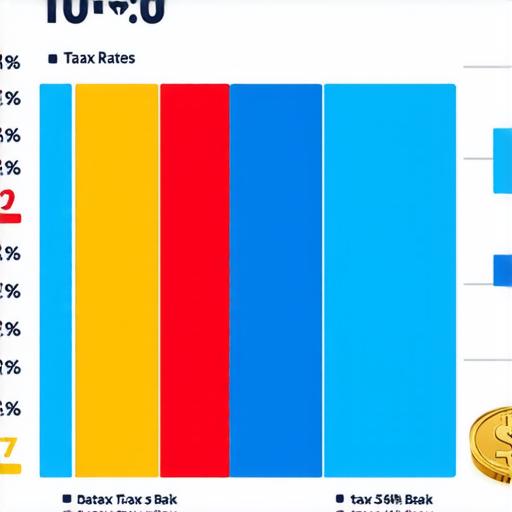
Introduction:
Cryptocurrencies have become increasingly popular in recent years, with many investors seeing them as an attractive alternative to traditional investments. However, one aspect of owning and trading cryptocurrencies that is often overlooked is the tax implications. This article aims to provide a comprehensive guide for crypto developers on what they need to know about the tax rate on their earnings.
Understanding the Basics:
Before we dive into the specifics of tax rates, it’s important to understand some basic principles of cryptocurrency taxation. In general, cryptocurrencies are considered property for tax purposes in most countries. This means that any gains or losses from buying, selling, or holding cryptocurrencies are subject to capital gains tax. The tax rate depends on the holding period and the type of transaction.
Short-term Capital Gains Tax:
If you hold a cryptocurrency for less than one year before selling it, your gains are considered short-term capital gains. These gains are taxed at your ordinary income tax rate, which can vary depending on your country and tax bracket. For example, in the United States, short-term capital gains are taxed at the same rate as ordinary income, up to a certain threshold.
Long-term Capital Gains Tax:
If you hold a cryptocurrency for one year or more before selling it, your gains are considered long-term capital gains. These gains are typically taxed at a lower rate than short-term capital gains, with many countries offering favorable tax treatment for long-term investors. For example, in the United States, long-term capital gains are taxed at a flat rate of 20%, up to a certain threshold.
Tax Treaties:
It’s important to note that cryptocurrencies are often subject to tax treaties between countries. These treaties can affect how gains and losses are taxed, depending on where you live and where the cryptocurrency is traded. For example, if you are a resident of the United States but trade cryptocurrency on an exchange in another country, you may be subject to that country’s capital gains tax rules.
Case Studies:
To help illustrate how tax rates on cryptocurrency earnings can vary depending on the specific circumstances, let’s look at a few case studies.
Case Study 1:
John is a resident of the United States and bought Bitcoin in 2017. He sold his Bitcoin in 2021 for a profit of $100,000. Since he held the Bitcoin for less than one year before selling it, his gains are considered short-term capital gains. This means that he will be taxed on these gains at his ordinary income tax rate. Assuming John’s marginal tax rate is 24%, he will owe $24,000 in taxes on his Bitcoin sale.
Case Study 2:
Sarah is a resident of the United Kingdom and bought Ethereum in 2018. She held her Ethereum for three years before selling it in 2021 for a profit of £50,000. Since she held the Ethereum for more than one year before selling it, her gains are considered long-term capital gains. This means that she will be taxed on these gains at a lower rate than short-term capital gains. Assuming Sarah’s marginal tax rate is 20%, she will owe £10,000 in taxes on her Ethereum sale.
Case Study 3:
Tom is a resident of Canada and bought Bitcoin in 2019. He held his Bitcoin for two years before selling it in 2021 for a profit of CAD 500,000.
